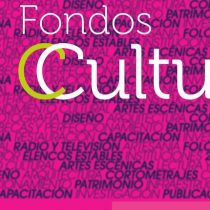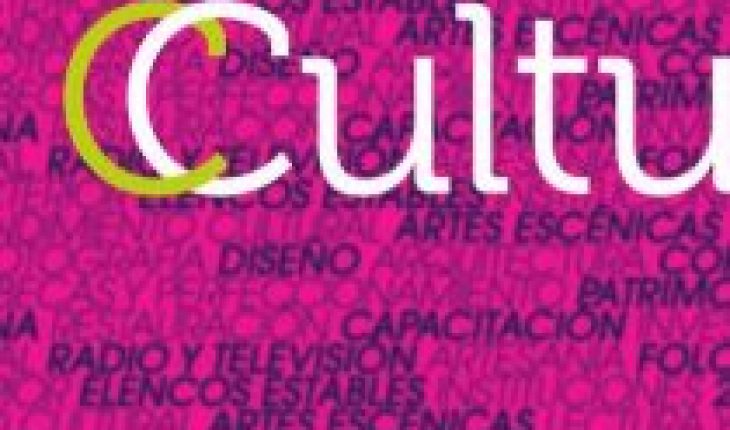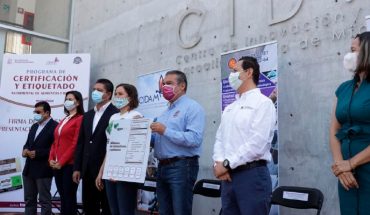
With the announcement of the highest resource delivery in the history of cultural institutionality, totaling more than $46 billion, the Ministry of Cultures, Arts and Heritage released the results of the 2021 Cultural Funds, which will finance 2,541 projects from all regions and communes of the country, amounting to $26.6 billion.
“This figure will also be supplemented during the month of April with another $10.7 billion that will be distributed from some of the waiting lists of the 2021 call, privileging those lines with high demand and with high participation of work teams,” announced the Minister of Cultures, Consuelo Valdés. He added: “As with the results we are communicating, the idea is to prioritize projects from regions other than the Metropolitan.”
One of the main objectives of the delivery of Funds 2021 is to support the revival of the sector through the 2,541 selected projects, which will benefit about eight thousand cultural workers, delivering only in terms of labor contracts more than $10.2 billion, equivalent to 38.7% of the total resources of this version.
The Secretary of State added that “in these nearly 30 years of the Culture Funds more than $350 billion has been delivered to more than 42,000 projects in all regions of Chile, including this year’s results.” In the past decade alone, 27,000 initiatives benefited, with more than $243 billion, representing 67.5% and 73.6% of all projects and resources, respectively.
Additional resources come from the Transitional Emergency Fund that arises to promote the activation of the various sectors affected by the coronavirus pandemic, ($15,314 million), the Collaborating Institutions of Cultures and the Arts Fund ($2.1 billion), the Heritage Fund ($1.4 billion) and the Fund for Civil Society Organizations ($1.546 million).
Decentralization
The Culture Funds 2021 and its 52 lines will deliver a total of $26.6 billion to 2,541 projects, allocating on average $10,467,767 to each initiative.
With decentralization as one of the main emphasis, overall results show that 1,543 projects are from initiatives that originate in regions other than the Metropolitan Region (RM), representing 60.7% of the total. In terms of resources, these regions were awarded more than $14,452 million ($14,452,202,880), equivalent to 54.3% of total funding. These results confirm the trend of the last decade, which shows sustained growth in selected initiatives and resources delivered in regions other than RM.
In relation to gender gaps, within the natural people benefited, it is women who had marginally more selected initiatives and resources allocated as project managers, with 50.7% and 51.1%, respectively. In relation to the work teams, women account for 54.1% of the members of the winning projects.
In measures related to the pandemic and the generation of digital projects for the cultural participation of citizens, 353 virtual projects and 727 of a face-to-face and digital nature benefited, equivalent to 13.9% and 28.6%, respectively. These received more than $11.6 billion ($11,618,128,071) together, representing 43.7% of all resources.
Detail by background
One of the main innovations of this version is the first installment of the Performing Arts Fund, whose nine lines will fund 218 projects for more than $2.7 billion ($2,767,051,011), benefiting disciplines such as theatre, dance, circus arts, oral storytelling, puppets and opera. Non-MRI regions accounted for 56.4% of initiatives and 54.9% of resources. On average, each project will receive $12,692,895.
Among the winning initiatives are “Patagonia, Post Pandemic Chamber Opera in commemoration of the 500th years of the Magellan expedition” ($39,580,443), by director Sebastián Errázuriz. Also the company KIMVNTeatro, with its commitment entitled “ITROFILL MONGEN” ($37.991.358), a multi-disciplinary and interdisciplinary project that brings together theater, music, audiovisual, media arts and social sciences, directed by Paula González Seguel, one of the main exponents of the Documentary Theatre in Chile. In the digital broadcast line is also the project “Circenses Footprints, Tour of Circus Art” ($5,956,668), a cargor the Chilean National Circus Foundation.
The Book Fund and its five lines selected 570 projects, allocating more than $4.2 billion ($4,254,820,279). Of these, 60.7% and 54.9% correspond to initiatives and resources for regions other than RM, respectively. On average each selected will receive $7,464,597. They are part of the list of winners projects such as “Reader promotion initiatives for children of non-territorial Transitional Neighborhood in Calama” ($10,259,700), by the Recrea Foundation and consisting of writing and recreational activities around reading, for a group of more than 200 children of Calama.
To this is added “Acquisition of a Bibliomobile for the Public Library of Torres del Paine” ($19,842,109), by that municipality, in the Magellan region. The Union of Experimental Publishers Foundation, a feminist group dedicated to the creation, editing and manufacture of print publications, was awarded $10,246,819 for its project in the Microeditorial modality, which seeks to generate a space in the formal book industry, as well as to make formats such as fanzines, artist’s book and photo books visible and valued.
The Music Fund and its seven lines benefited 336 initiatives, for more than 2.3 billion ($2,376,624,869). Non-MRI regions received 57.5% of all resources and 56.5% of the initiatives were allocated. On average each selected will receive $7,073,288.
Among those selected is the project “De Musas a Creadoras Mujeres Músicas de Chile” ($6,844,236), by Angie Giaverini Santibañez, which proposes to create a digital platform to record and disseminate the creations and contributions of 100 women in the development of music in Chile. Two projects aimed at children’s musical development are added: In Valparaiso, the La Matriz Infanto-Youth Orchestra ($9,883,800), consisting of 40 students between 7 and 20 years old In Maule, the formation of the Tremen Rari Carnival Orchestra ($9,958,280), made up of children and adolescents from the town of Rari, in the commune of Colbún.
The Audiovisual Fund and its nine lines will finance 158 projects for about $5.5 billion ($5,475,739,745), a average of $34,656,581 for each selected. Among the projects benefited is “History of a Bear: The Movie”, by Osorio and Escala Ltda., which was awarded $209,790,000 for the production of the animated feature film based on history that under the same name won an Oscar award for Best Animated Short Film in 2016. The making of this film has been supported by the Audiovisual Development Fund since its pre-production stage (call 2017).
To this is added the film by Sebastián Ayala, “La isla de las Gaviotas”, presented by the production company Jirafa, which was awarded $157,500,000 in the Audiovisual Production Line of Fiction Feature Films. Marialy Rivas (“Young and Crazy”), Rodrigo Sepúlveda (“I’m afraid Torero”) and Valeria Sarmiento (“The Wandering Soap Opera”, together with Raúl Ruiz) will receive $4 million each for the script of their projects “Chavela”, “Child bomb” and “Huellas”, respectively.
The National Fondart and its seven lines will deliver more than $4.6 billion ($4,674,846,846) to 287 projects, representing a 25.3% increase in the number of selected compared to 2020. On average each selected will receive $16,288,665. Among the winners is “Bringing contingencies: Reopening the Fonck Museum prepared before COVID-19”, whose initiative proposes to adapt the spaces of the valparaiso region.
53 projects by artisans and artisans also benefited – in the Regional Crafts line. Among them are “Artífices del Fuego Pre y Post Pandemia”, by Pedro Lizana, urban craftsman who creator of the Meeting of the Arts of Fire of the RM; “With the heart in tradition and the present, the Relmu Witral we weeds to its people”, of the Relmu Witral Association, association of Mapuche reading machines of Tirua, Biobío; and “Creating to Play”, initiative for the creation of handmade toys of the association New Horizon of English Bay of Atacama.
The Fondart Regional and its ten lines will benefit 620 projects for more than $5.5 billion ($5,550,370,466). 87.7% of its resources and 88.9% of projects are in regions other than rm. On average each selected will receive $8,952,210. Among the selected projects are the Festival Art and Memory of Coal, biobío, within the line Organization of Festivals, Fairs and Carnivals. The activity awarded $30 million seeks to promote and energize cultural activity in Curanilahue, through a festival of the arts, culture and heritage of the coal area. In that same line of funds is the Regional Art Festival CoTarapacá’s ntmporanean. You will get $21,850,200 for the annual competition held at the Regional Museum of Iquique, around cycles linked to art and archaeology with contemporary characteristics.
As for the Chile Crea Scholarships, 352 were awarded with a total budget of about $1.5 billion ($1,499,142,898). Of all the applications submitted and selected, 55.7% correspond to regions other than the RM, with 46.5% of all resources allocated.
Recovery of the sector
In addition to the 2021 Culture Funds, the Ministry of Cultures will from April onwards allocate an additional $20 billion for the reactivation and recovery of the cultural, artistic and heritage sector, to complete the announced $46.6 billion.
These resources will be allocated as follows: during April the winners of the $10.7 billion will be announced, which will be obtained from the waiting lists of the 2021 call for Culture Funds.
The lines that will be able to access these resources will be announced soon, prioritizing those that involve the financing of working groups and have a direct impact on the reactivation of the cultural sector. The remaining resources, equivalent to $9.6 billion, will be delivered over the next few months through various instruments.





